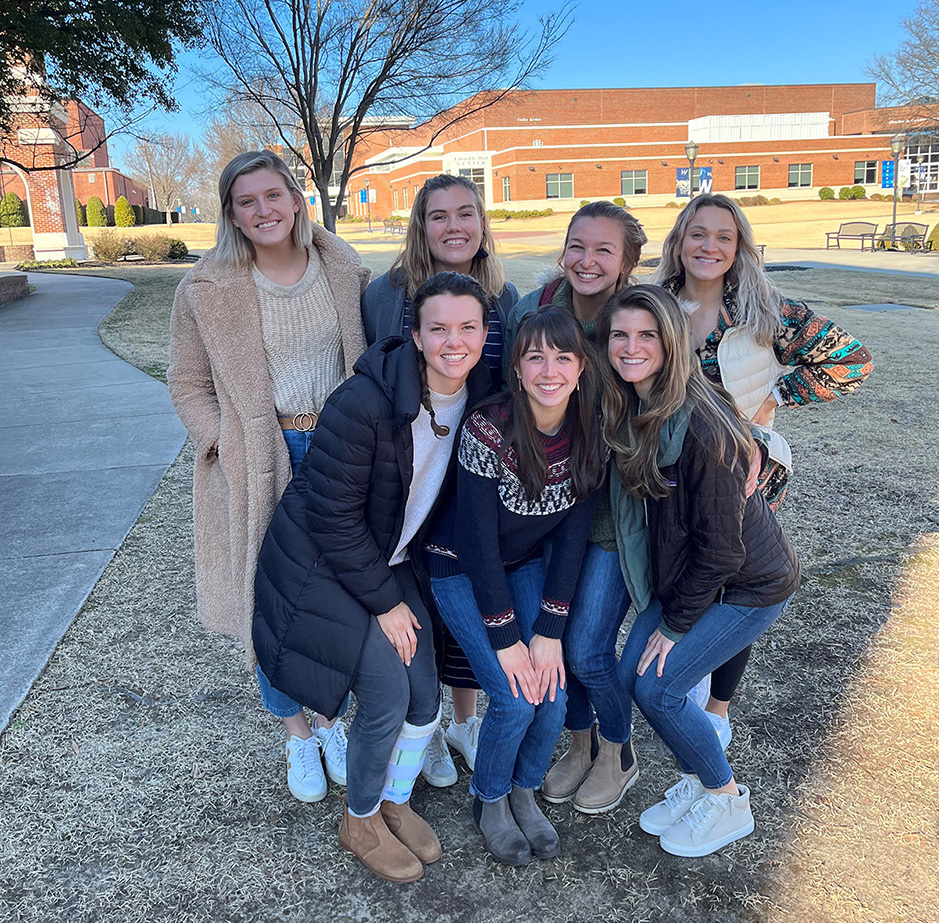Student Spotlight, Rose Wuertz: Collaborating for Success
The OT Student Spotlight is an ongoing series of articles that highlight OT and OTA student success stories as well as the quirks, challenges, and joys that make up student life. Share the great things you and/or your class is up to within the OT community!
Describe a meaningful, OT-related project that you were recently involved in.
When I began OT school, I was very excited about finding a volunteer opportunity in the community. During the fall of 2021, I began a mentorship program with our local elementary school. Because the COVID-19 pandemic created lots of change for elementary school students, my goal was to begin a sustainable program where OTD students could consistently volunteer and be able to form relationships with the elementary schoolers, while meeting their current needs. Our target population was 5th grade students who were not currently receiving OT services, but who might benefit from additional support prior to transitioning to middle school. In collaboration with the school’s OT, we chose to support the elementary school’s focus on social-emotional skills. Given these goals, teachers recommended students for the mentorship program. In the pilot phase, our team of OTD student mentors visited Wingate Elementary School once a month throughout the fall semester, working with a group of 14 students. Our lessons centered around identifying emotions through the Zones of Regulation with activities such as playing charades, practicing communication and teamwork skills through hands-on challenges, and sharing learning strategies for regulating emotions with sensory bottles and breathing techniques. Some of my main takeaways from the program are:
- Collaborating with a team of peers leads to ideas that I would not have thought of on my own and therefore helps us to better serve the students in our program.
- Listening to the students and remembering their names can go a long way.
- Even if lessons do not go as planned, we can interact with the students on a personal level and reflect on the experience to make changes for next time.
- Sometimes you have to start small in order to create an attainable goal.
Acknowledgements:
Thank you to Dr. Douglas, OTD, OTR/L, and Andrea Maxwell, OTR/L, for their guidance and support of the program’s development. The program would not have been possible without this team of dedicated and passionate mentors: Cameron Marks, Caty Miller, Robin Oakley, Lyndsi Pound, Kaela Reckard, and Kelly Reyer.
What is in your “OT school box”?
- Collaborating with my peers and asking how they would approach a clinical situation. We usually have different, yet plausible ideas.
- Setting up meetings with professors to review content or past exams to stay on top of topics I do not understand as well. Not waiting to ask for clarification always helps in the long run.
- Being an AOTA member! I love receiving OT Practice and utilizing the various resources for students.
- Following Instagram accounts or podcasts that inspire ideas for interventions or have tips for NBCOT® exam preparation.
What is the strangest or most inspiring thing you have witnessed in class?
One of the most inspiring classes I attended was a guest lecture from Amtryke Adaptive Tricycle Program. We trialed many different types of adaptive bikes, learned the various features, and practiced determining what type of bike would be best for a client. The most inspiring part was reading the thank you letters from recipients, seeing photos of them using their bikes, and knowing all the bikes are given free of cost.
If you could be any assistive device/durable medical equipment, what would you be?
If I could be any type of DME, I would be a grab bar because they represent a reliable, consistent, and strong support. This is the type of therapist I would like to be.
What advice do you have for students who are just starting their OT program?
I would recommend creating study materials from each class on the major topics and keeping them in one spot to refer back to. I reference spinal cord injury levels, FIM/GG scoring, and manual muscle testing notes regularly. It is helpful for me to create written study guides as we learn the material in order to keep abreast of all the content. Now, as I am starting to study for the NBCOT certification exam, these study guides help direct what I need to review. I am starting a new binder that combines common reference materials from mental health, pediatrics, adults, and geriatrics. Watching videos of practitioners or other students administering whole assessments is also a tool I find helpful when learning about assessments.
Tell a funny or meaningful story about a time you had to explain what OT is to a friend, family member, or stranger.
One time I complimented a friend on their engineering exam, and they replied, "I know I can count on you to help me get on and off the toilet!"
What is your dream practice area?
Any setting that is invested in the community, forms relationships with their clients, and values their therapists.
Rose Wuertz is excited to begin her Level II fieldwork and capstone project, which will combine OT and dance movement for individuals with cancer. Outside of school, she enjoys hiking, mountain biking, and contra dancing. Still a child a heart, Rose always has bubbles in her backpack and is ready to swing on the playground!
May 2022

OTD Student Volunteer Mentors
Front row, left to right: Kaela Reckard, Rose Wuertz, Cameron Marks
Back row, left to right: Lyndsi Pound, Caty Miller, Kelly Reyer, Robyn Oakley